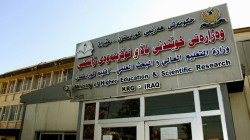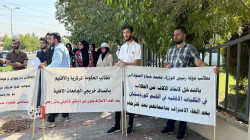Iraqi Ministry incorporates study of Baath Party's "Crimes" in university curriculum

Shafaq News/ The Iraqi Ministry of Higher Education and Scientific Research decided to introduce the study of the "crimes" attributed to the Arab Socialist Baath Party into the syllabi of both public and private universities.
The subject, under the title: "Crimes of the defunct Ba'ath Party," encompasses various academic disciplines, including law, political science, psychology, and sociology.
This initiative aims to provide students with a comprehensive understanding of the historical and political context surrounding the actions of the Baath Party in Iraq.
The Ba'ath Party in Iraq was a political party that ruled the country from 1968 to 2003. It was founded in 1951 by Fuad al-Rikabi and was based on the ideology of Ba'athism, a mixture of Arab nationalism, pan-Arabism, Arab socialism, and anti-imperialism.
The Ba'ath Party first came to power in Iraq in 1963 but was overthrown a few months later. It regained control in 1968 and remained in power until the 2003 invasion of Iraq by the United States and its allies. During its time in power, the Ba'ath Party was responsible for several human rights abuses, including the Anfal genocide, the Halabja chemical attack, and the invasion of Kuwait.
The Ba'ath Party was banned in Iraq after the 2003 invasion but continues to exist underground. It is estimated that there are still a few thousand Ba'ath Party members in Iraq, but they have no significant political power.
The party's leader, Saddam Hussein, had absolute power over the country. He was captured by U.S. forces on December 13, 2003, and executed by hanging on December 30, 2006



